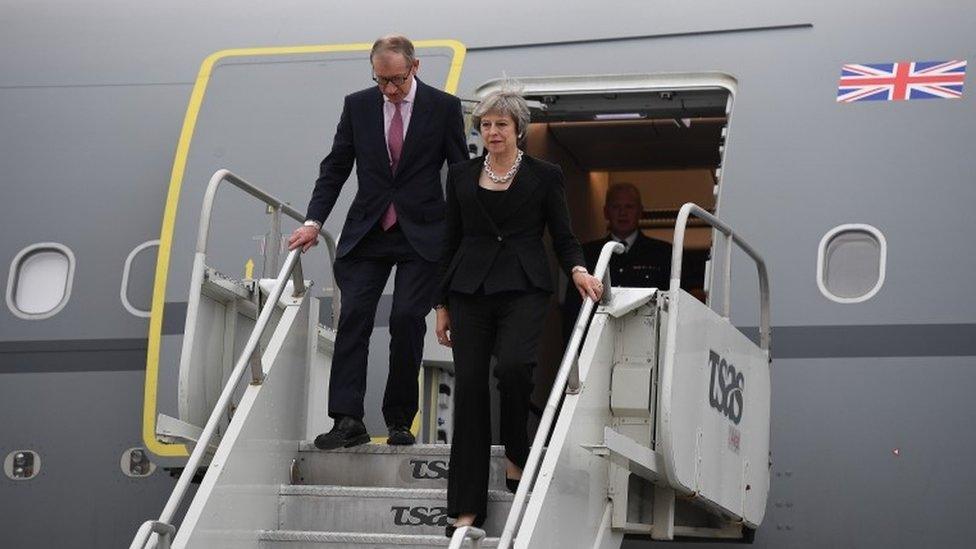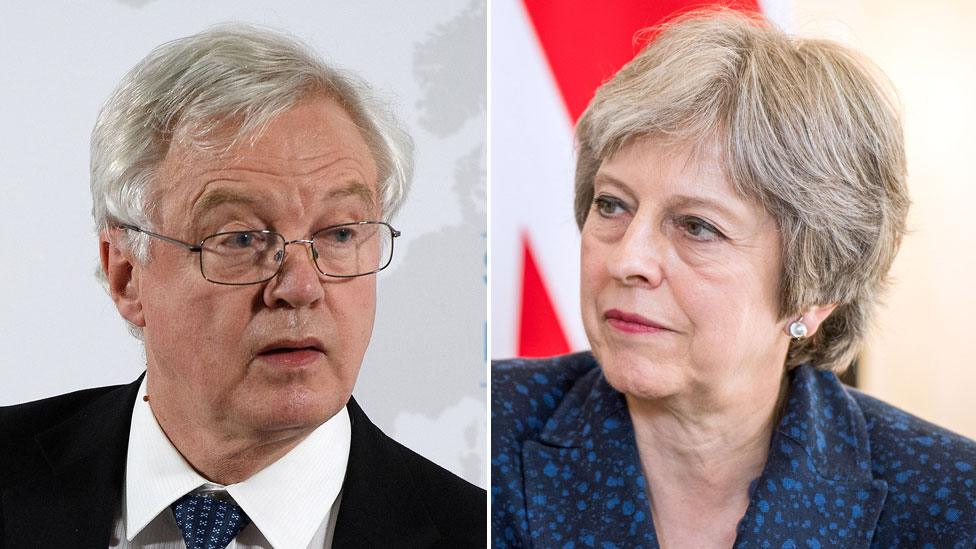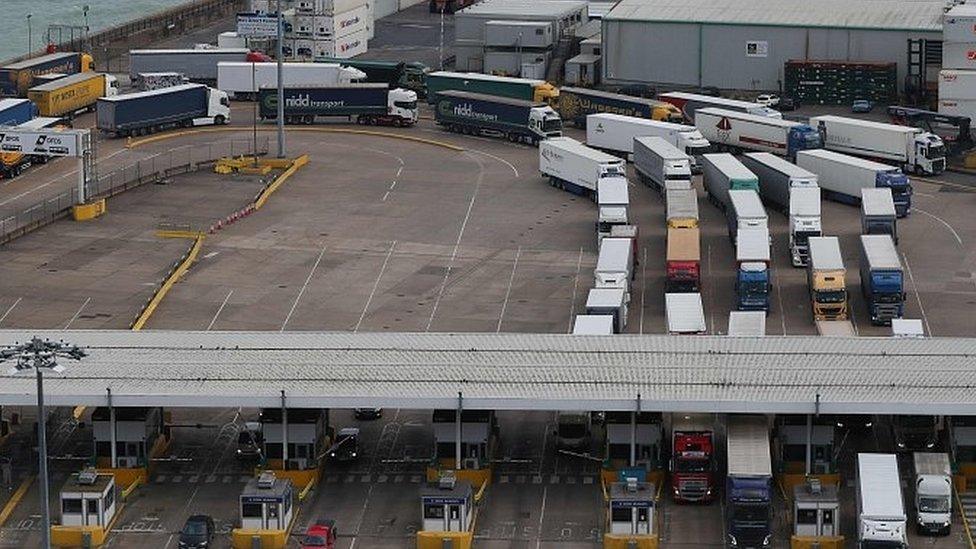Brexit: May refuses to guarantee 'backstop' end date
- Published

Theresa May has arrived in Canada for the G7 summit
Theresa May has refused to give a guarantee that the government's "backstop" plan on customs after Brexit will not extend beyond December 2021.
The prime minister was forced to agree a cut-off date after Brexit Secretary David Davis threatened to resign.
But speaking to reporters on her flight to the G7 summit in Canada, she twice refused to give a "cast-iron guarantee" that the end date would not slip.
The proposal would see the UK match EU trade tariffs temporarily.
It would be used if a permanent customs deal is not in place at the end of the 21-month Brexit transition period, with the aim of avoiding a hard Irish border.
In response to whether she would be able to guarantee the December 2021 end date, Mrs May said the government was "very clear" that it expected to have a customs arrangement in place "at the very latest" by December 2021.
The "backstop" plan is "something that we don't want ever to happen," she said.
Pressed for a second time to give a cast-iron guarantee, she said: "I have always been clear that the backstop was time-limited. The point about the backstop is it may never be used.
"The point about the backstop is that it only comes in if, for technical reasons, the agreed end-state customs arrangement has not been possible to put in place by January 1 2021."
The government is trying to make progress before a crucial meeting of EU leaders later this month.
But the plan has yet to be agreed by the EU - on Thursday its chief negotiator Michel Barnier set out on Twitter the criteria, external by which it would be judged.

Allow X content?
This article contains content provided by X. We ask for your permission before anything is loaded, as they may be using cookies and other technologies. You may want to read X’s cookie policy, external and privacy policy, external before accepting. To view this content choose ‘accept and continue’.

Between 29 March 2019, when the UK leaves the EU, and 31 December 2020 the EU and UK have agreed on a transition or implementation period, during which time the free movement of goods, people and money can continue.
The aim is to buy time before the permanent EU-UK future relationship - which has yet to be agreed - begins.
But if new arrangements are not in place by the end of 2020, then a "backstop" - or contingency plan - is needed if a hard border is to be avoided between Northern Ireland and the Irish Republic - which is an EU member.
The UK has rejected the EU's proposal - that Northern Ireland remain aligned with EU rules for a period - saying it would effectively create a border between Northern Ireland and the rest of the UK.
On Thursday it published its own proposal, external, which followed a series of meetings between the prime minister and David Davis, as well as with fellow cabinet Brexiteers Liam Fox and Boris Johnson.
The proposal would see the whole of the UK match EU trade tariffs temporarily in order to avoid a hard Irish border.
Amid reports that Mr Davis would quit the cabinet if no end date was included, the document was changed to include the line: "The UK expects the future arrangement to be in place by the end of December 2021 at the latest."

Who's the real winner?
The Brexit secretary claimed a victory, but in Westminster what starts out as a "win" can, by morning, seem like a hollow victory, writes BBC political editor Laura Kuenssberg.
Senior figures in government are questioning whether David Davis really achieved very much.
He may have saved face after making a huge fuss but look carefully at the concession he won, they say, and it doesn't really mean very much.
A few words here, a loosening up of the planned language there, perhaps the victory really was Theresa May's?

Brexiteers are concerned that if the UK is tied into an open-ended customs arrangement with the EU it will prevent it from developing its own trade policy and the UK would remain under the jurisdiction of the European Court of Justice.
Liam Fox is asked: Who governs UK tonight?
Liam Fox told the BBC: "As everybody knows from the referendum, opinions and feelings run high on this issue but we've shown we can reach an agreement civilly and collectively."
But the European Parliament's Brexit co-ordinator Guy Verhofstadt said: "A backstop that is temporary is not a backstop, unless the definitive arrangement is the same as the backstop."
And Taoiseach (Irish prime minister) Leo Varadkar said that any proposal could not be "time limited by date".
- Published7 June 2018

- Published6 June 2018

